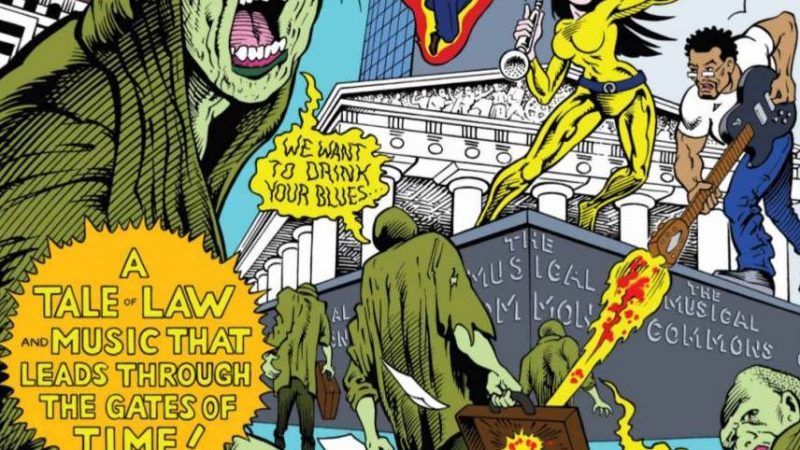Theft: A History of Music

"Classical musicians borrowed from each other all the time!" a historian declares. "It's like an insane game of musical Chutes and Ladders." An actual game of Chutes and Ladders follows, with annotations explaining where Beethoven borrowed from Handel, Brahms from Beethoven, Mahler from Brahms. Sampling and remixing, we're reminded, are a lot older than hip-hop.
That sequence comes about a fifth of the way through Theft: A History of Music, a 259-page comic about an art form's evolving interactions with markets, technology, and the law. With a scope that stretches from medieval troubadours to modern rappers, Theft shows not just how common borrowing has been but how music is shaped by the social context that produces it. In the baroque era, for example, composers created pieces for particular occasions, so it was widely seen as acceptable to revise an old tune for a new setting. Later composers started to make money from sales of sheet music, and—in a related development—"original genius" became more prized.
The text does its share of borrowing itself: There are allusions to everything from Kafka to The Jetsons. Some of the jokes fall flat, but the book has only one big drawback: It can't play the music it describes. Some creative borrower should turn it into an animated movie.
This article originally appeared in print under the headline "Theft: A History of Music."


Show Comments (1)